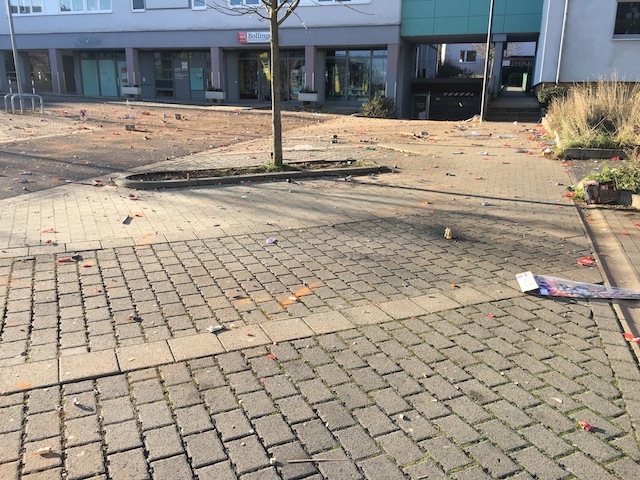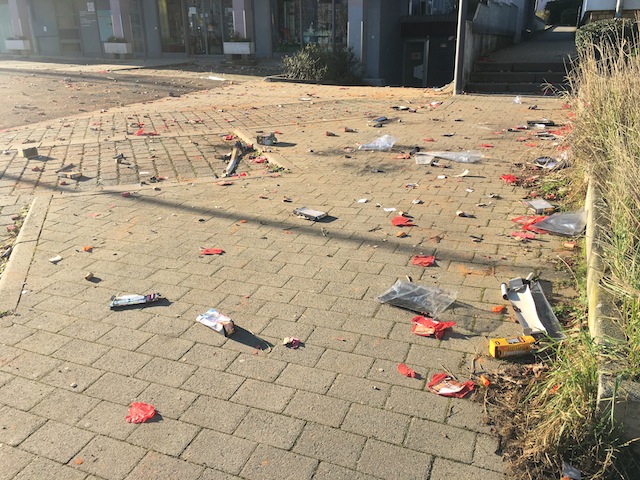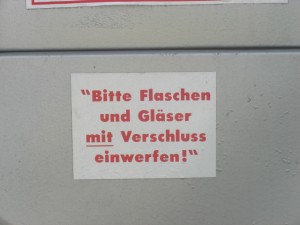Millions of Euros are wasted every New Year’s Eve (the previous year, 2018, Germans spent €133 million on fireworks).
Ever so efficient, all public spaces have the waste removed before the following work day, 2 January.
These photos were taken at the EDEKA supermarket parking lot on the former military post Camp King in Oberursel.


“Water and air, the two essential fluids on which all life depends, have become global garbage cans.”
― Jacques-Ives Cousteau




